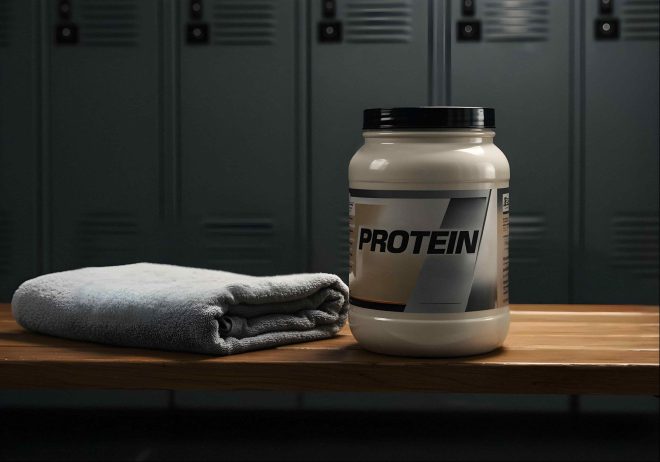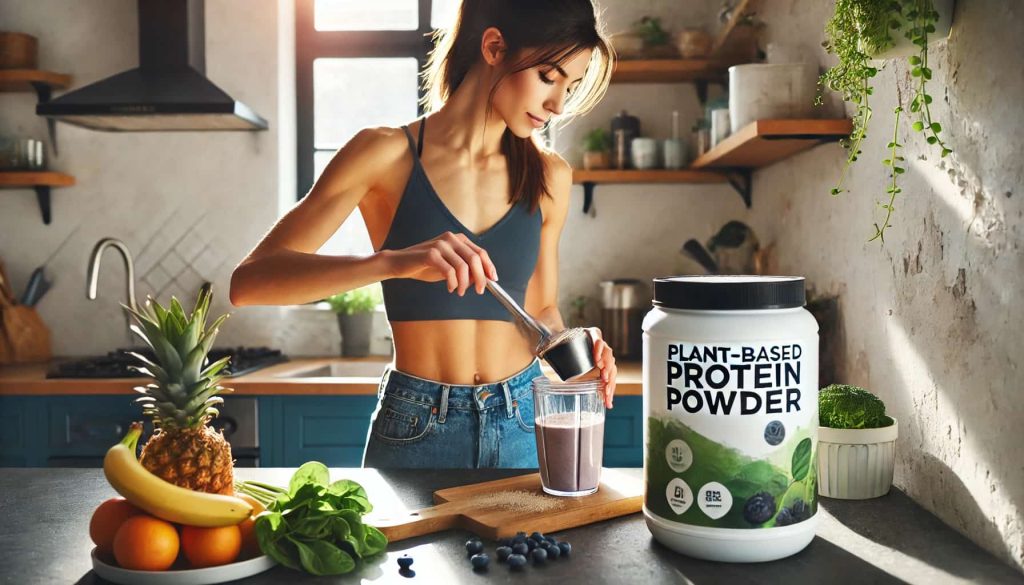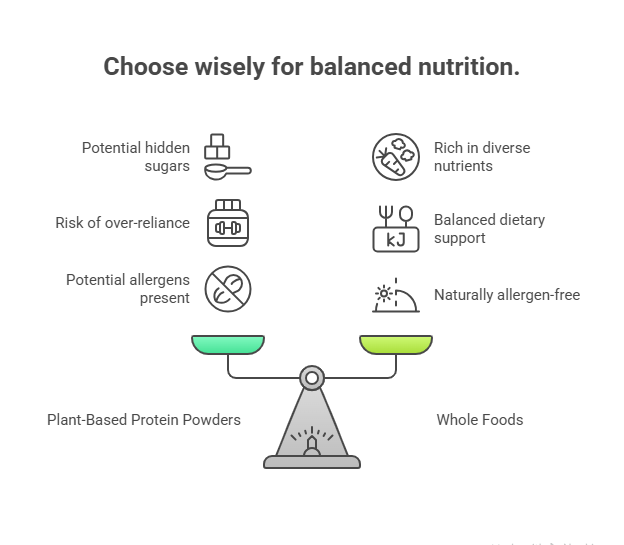
I’ve experimented with more protein powders than I can count, and one thing has become clear: they’re not just for bodybuilders. For anyone trying to manage weight, protein supplements are a game-changer. They’re quick, versatile, and save you from complicated meal prep while still delivering the nutrients your body needs. But when it comes to dropping pounds, the big question is: do plant-based protein powders actually help?
From my own experience and the research backing it up, the answer is yes. Plant-based protein isn’t simply a dairy-free swap; it brings unique advantages that support real, lasting results. It helps keep hunger under control, reduces unnecessary snacking, and provides clean fuel for workouts. On top of that, many blends support digestion and overall health, which is something you feel once you stick with them. In this article, we’ll dive into how they work, the science behind them, and the top powders worth trying.
1. How Plant-Based Protein Powders Support Weight Loss
Promote Fullness and Control Cravings
One of the toughest things about trying to lose weight is that non-stop urge to nibble and give in to cravings. But plant-based protein powders can really help with that. Because they’re full of protein and fiber, they keep you feeling satisfied longer. This makes it simpler to cut back on calories without feeling like you’re missing out on anything.
Boost Metabolism
Protein has a natural calorie-burning advantage thanks to the thermic effect of food your body uses more energy to digest it compared to fats or carbs. By prioritizing plant proteins, you give your metabolism a subtle but meaningful boost throughout the day.
Preserve Lean Muscle
Losing weight isn’t only about seeing the numbers on the scale go down; it’s also about taking care of your muscles. Plant-based proteins give you the important building blocks that help your muscles recover and stay strong. Why is this important? Well, muscle burns more energy than fat, which helps you keep your body’s engine humming along nicely, even when you’re cutting back on calories.
Support Gut and Overall Health
Plant-based protein powders often come with bonus nutrients: vitamins, minerals, antioxidants, and digestive enzymes. These not only enhance overall health but also improve digestion and nutrient absorption. Plus, the added fiber supports gut health an often-overlooked factor in sustainable weight management.
2. Benefits of Choosing Plant-Based Protein Over Others
When it comes to protein powders, whey often gets the spotlight but plant-based options bring their own set of compelling advantages.
- Suitable for more people. Plant-based protein powders are naturally vegan and dairy-free, making them ideal for anyone who’s lactose intolerant or sensitive to dairy. Many are also free from soy and gluten, meaning they work for a wide range of dietary needs.
- Cleaner nutrition. Unlike some protein shakes and weight-gain formulas that are packed with fake sugars, flavors, or extra sugar, good plant-based options usually keep it simple. They focus on protein, fiber, and perhaps some digestive aids. This means you get a purer, more wholesome product to power your body, without all the unnecessary additives.
- Better for the planet. Opting for plant-based proteins is a win-win: it benefits your health and helps protect our planet. Creating these proteins generates less pollution than making dairy-based options, making them a better, greener pick for people who care about the environment.
3. Top Plant Protein Sources for Weight Loss
Not all plant proteins are created equal, but the good news is that today’s powders blend multiple sources to provide complete nutrition. Here are some of the most effective ones to look for:
- Pea Protein: Rich in branched-chain amino acids (BCAAs) that support muscle recovery and satiety.
- Brown Rice Protein: Easily digestible and hypoallergenic, making it a staple in many blends.
- Chia, Flax, Hemp, and Pumpkin Seed Proteins: These seeds add not only protein but also fiber, omega-3s, and minerals that aid in overall health and weight management.
- Soy Protein (when tolerated): One of the few plant proteins considered “complete” on its own, with all essential amino acids.
- Blended Formulas: Many premium powders combine two or more of the above to create a balanced amino acid profile, mimicking the benefits of animal proteins while keeping it fully plant-based.
4. Recommended Plant-Based Protein Powders for Weight Loss
Let’s be real, not all protein powders are the same. Some are packed with unnecessary sugars and additives, while others give you a pure, effective boost that can actually help with your weight goals. Experts and nutritionists have pointed out some truly great choices that stand out from the crowd:
Orgain Organic Protein Powder
- Protein per serving: 21g
- Why it works: Orgain blends pea, brown rice, chia, and mung bean proteins, creating a complete amino acid profile. It’s organic, free from artificial sweeteners, and easy on the stomach.
- Key benefits: Promotes satiety, supports muscle repair, and provides clean nutrition with low sugar content.
MyPro Sport Nutrition Plant Protein
- Protein per serving: 23g
- Why it works: This formula is fortified with vitamins and digestive enzymes, making it not just a protein source but a broader nutrition boost.
- Key benefits: Enhances digestion, supports recovery, and helps curb hunger between meals.
Plantigo Plant Protein Powder
- Protein per serving: 24g
- Why it works: Plantigo combines peas, brown rice, flax, and pumpkin seeds with added enzymes for absorption.
- Key benefits: Multi-source protein blend, promotes fullness, and aids smooth digestion.
KOS Organic Plant Protein
- Protein per serving: 20g
- Why it works: Featured by Healthline and Women’s Health, this powder combines pea, quinoa, chia seed, flaxseed, and pumpkin seed proteins. It’s USDA organic and includes digestive enzymes.
- Key benefits: Complete amino acid profile, easy to mix, and available in indulgent flavors without the guilt.
Garden of Life Raw Organic Protein
- Protein per serving: 22g
- Why it works: Made from a blend of sprouted grains, seeds, and legumes, this powder is certified organic, non-GMO, and loaded with probiotics.
- Key benefits: Supports gut health, boosts satiety, and delivers clean, raw nutrition.
5. How to Use Plant-Based Protein Powder for Weight Loss Effectively
The magic isn’t just in the powder, it’s in how you use it. To maximize weight loss benefits:
- Swap out higher-calorie snacks or meals. Replace a sugary snack or heavy breakfast with a plant protein shake to reduce overall calorie intake.
- Pair with a calorie-controlled diet. Protein powder is a tool, not a shortcut. It works best when integrated into an eating plan that’s balanced and mindful.
- Combine with exercise. Resistance training + protein = fat loss while preserving lean muscle.
- Get creative. Blend protein powder with water or plant-based milk, and add fiber-rich extras like spinach, berries, or chia seeds. This not only boosts nutrition but also keeps you fuller, longer.

ALT TAG: A young athletic woman in a bright kitchen scooping plant-based protein powder into a blender.
Possible Drawbacks and Things to Watch Out For
While plant-based protein powders can be a powerful ally in weight loss, they’re not all created equal. Here are a few things to keep in mind before adding one to your daily routine:
- Hidden sugars and fillers. Some brands sneak in sweeteners, artificial flavors, or unnecessary additives that can undermine your weight-loss goals. Always check the nutrition label carefully.
- Over-reliance on powders. Protein shakes should complement not replace a balanced diet. Relying too heavily on them can leave you short on other key nutrients found in whole foods.
- Potential allergens. Even though many plant-based powders are dairy-free, some still contain soy, gluten, or nut-based ingredients. If you have sensitivities, scan the ingredient list before purchasing.

Conclusion: My Experience
I’ve tried enough protein powders over the years to know this: plant-based options aren’t just a “vegan substitute,” they’re a legitimate, science-backed ally for weight loss. The difference shows up in the small but crucial ways. They keep you fuller for longer, which makes it easier to say no to the mid-afternoon snack trap. They help you burn a little more energy through digestion. And most importantly, they protect lean muscle, which is the engine that keeps your metabolism firing even when calories are low.
But here’s the truth: no powder, plant-based or otherwise, is a magic bullet. The real results come when you use them wisely alongside balanced meals, consistent exercise, and smart choices. The key is choosing clean, nutrient-rich blends that work with your lifestyle. Do that, and plant protein isn’t just part of your diet, it becomes part of your success story.
FAQs on Plant-Based Protein Powder for Weight Loss
1. What is the best plant-based protein for weight loss?
The best options are blends pea and brown rice paired with seeds like chia, hemp, or flax. Together, they give you a complete amino acid profile that supports muscle repair and keeps you feeling fuller for longer.
2. Is plant-based protein powder good for muscles?
Yes. Plant proteins provide essential amino acids that help preserve lean muscle mass during weight loss. This is crucial because muscle keeps your metabolism running efficiently.
3. What is the highest quality plant-based protein powder?
Brands like Orgain Organic, Garden of Life Raw Organic, and KOS Organic consistently rank high for their clean ingredients, solid protein content, and digestive support.
4. Can I take plant protein powder every day?
Definitely. Many people use it daily as a shake, smoothie booster, or meal replacement. Just balance it with whole foods so you’re not missing out on other nutrients.
5. Which plant has the highest-quality protein?
Soy protein is considered “complete” on its own, but pea protein combined with rice or seed proteins delivers similar results without common allergens.
GIPHY App Key not set. Please check settings